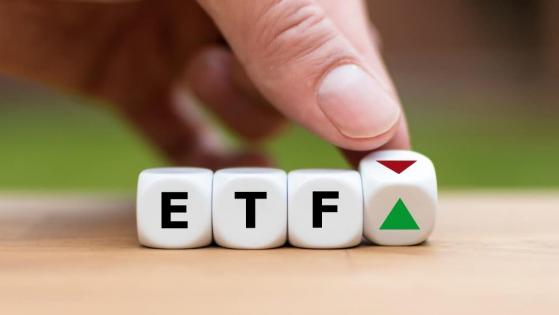Investing in stocks can give you strong returns in the long term. But it is only a few stocks that give you the most returns. The 80-20 rule says 20% of the stocks command 80% of the market. But what if you missed those 20% stocks? You can reduce the downside risk by investing in ETFs. ETFs give you exposure to those 20% stocks by replicating market indexes, sector stocks, and dividend stocks.
Investing in ETFs ETF investing has its own rules. With ETFs, you don’t have to worry about stock picking. Instead, focus on your investment strategy and the management expense ratio. Here is an investment strategy that I will use for ETF investing. It involves three types of ETFs:
- An international ETF to get exposure to foreign exchange gains and growth in other countries.
- A dividend ETF for regular income.
- An index ETF to get exposure to the Canadian market.
iShares NASDAQ 100 Index ETF (CAD-Hedged) (TSX:XQQ) replicates the Nasdaq 100 index for just a 0.39% management expense ratio (MER). The XQQ ETF has surged 215.4% in the last five years. This difference in the ETF and index performance is a result of the annual MER and index tracking error.
But this difference is a small price to pay for getting exposure to FAAMG (Facebook (NASDAQ:FB), Apple (NASDAQ:AAPL), Amazon (NASDAQ:AMZN), Microsoft (NASDAQ:MSFT), Google [now Alphabet]) and other growth stocks for $111.64 per unit. The coming 10 years will take Nasdaq to a different level. The tech is at the cusp of atomic level growth. The 5G, artificial intelligence (AI), and Internet of Thing (IoT) revolution are set to bring the world to the cloud.
Elon Musk and Jeff Bezos are also exploring the possibilities of commercializing space travel. If they succeed, where will they launch their initial public offering? It’s the Nasdaq. And the XQQ ETF will be there to get exposure to that, too.
A dividend ETF The Canadian stock market is popular for its financial and energy sectors. The sector giants’ reputation of giving regular and incremental dividends precedes them. The Vanguard FTSE Canadian High Dividend Yield Index ETF (TSX:VDY) has about 60% of its holdings in the top financial companies and about 22% holdings in top energy companies.
Among VDY’s top holdings are Royal Bank of Canada, Toronto-Dominion Bank, and Enbridge. It also gives you exposure to them and 36 more dividend stocks for $40.44 per unit. The ETF has a 4.1% dividend yield and an MER of 0.21%. The March 2020 crash has also created a recovery rally in energy and financial stocks, and the ETF is benefiting.
Betting on Canada Canada has a lot more to offer than just dividend. Its tech sector is proliferating, as names like Shopify come into the limelight. Invesco S&P/TSX Composite ESG Index ETF (TSX:ESGC) tracks the TSX Composite Index, giving you exposure to Shopify and other large-cap stocks. The ETF has a high weightage (over 30%) towards financials and a 12-14% weight in information technology, industrials, energy, and materials.
The ESGC ETF started in September 2020 and has a 0.17% MER. Since its inception, it has returned 21%. As Canada recovers from the pandemic and the economy reopens, investment experts expect the stock bulls to continue to rally. The ETF will give you a balanced exposure to this rally.
The post 3 Top ETFs to Buy Today appeared first on The Motley Fool Canada.
John Mackey, CEO of Whole Foods Market, an Amazon subsidiary, is a member of The Motley Fool’s board of directors. Suzanne Frey, an executive at Alphabet (NASDAQ:GOOGL), is a member of The Motley Fool’s board of directors. Teresa Kersten, an employee of LinkedIn, a Microsoft subsidiary, is a member of The Motley Fool’s board of directors. Randi Zuckerberg, a former director of market development and spokeswoman for Facebook and sister to its CEO, Mark Zuckerberg, is a member of The Motley Fool's board of directors. Fool contributor Puja Tayal has no position in any of the stocks mentioned. The Motley Fool owns shares of and recommends Alphabet (A shares), Alphabet (C shares), Amazon, Apple, Enbridge, Facebook, Microsoft, and Shopify. The Motley Fool recommends the following options: long January 2022 $1,920 calls on Amazon, long January 2023 $1,140 calls on Shopify, long March 2023 $120 calls on Apple, short January 2022 $1,940 calls on Amazon, short January 2023 $1,160 calls on Shopify, and short March 2023 $130 calls on Apple.
This Article Was First Published on The Motley Fool
